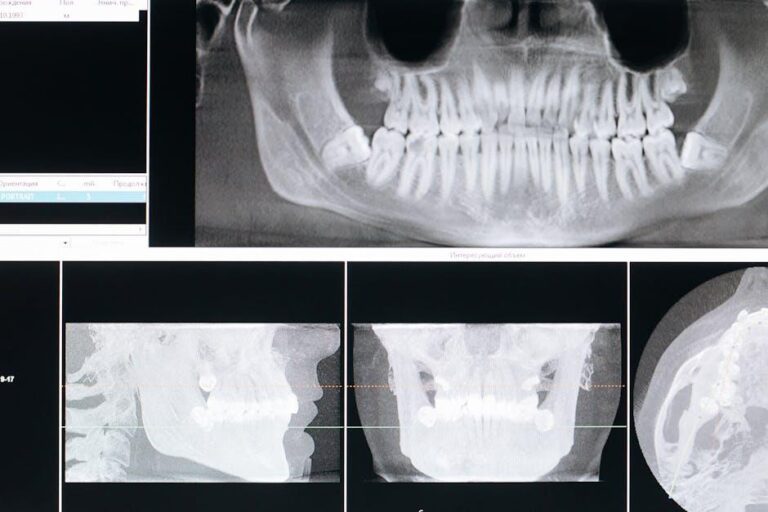
Poor Oral Health Potentially Linked To Chronic Health Problems – U.S. News & World Report
Oral health is often considered an isolated aspect of personal care, focused mainly on appearance and mouth comfort. However, recent findings highlighted by U.S. News & World Report suggest a powerful link between poor oral health and several chronic systemic diseases. Understanding this connection is vital for maintaining overall well-being and preventing long-term health complications.
Introduction: Why Oral Health Matters More Than You Think
Oral health encompasses more than just cavity-free teeth. It involves the gums, tongue, cheeks, and the general condition of your mouth in relation to your whole body. The mouth is the gateway to the body, and any infection or inflammation in this area can potentially affect other bodily systems. Studies have increasingly found associations between poor oral hygiene and chronic health problems, including cardiovascular diseases, diabetes, respiratory infections, and even cognitive decline.
The Connection Between Poor Oral Health and Chronic Diseases
What exactly links oral health to chronic illnesses? It generally boils down to inflammation and bacteria. Gum disease, also known as periodontal disease, creates pockets where harmful bacteria flourish. These bacteria and the inflammatory response they trigger can enter the bloodstream, influencing organ systems and contributing to the development or exacerbation of chronic conditions.
Key Chronic Health Conditions Linked to Oral Health
| Chronic Condition | Connection with Poor Oral Health | Potential Impact |
|---|---|---|
| Cardiovascular Disease | Inflammation from gum disease may contribute to artery plaque buildup | Increased risk of heart attacks and strokes |
| Diabetes | High blood sugar worsens gum infections; gum disease can make diabetes harder to control | Complicated glucose control, higher risk of diabetic complications |
| Respiratory Infections | Bacteria from mouth can be inhaled into lungs causing infections | Pneumonia, COPD exacerbations |
| Alzheimer’s Disease | Chronic inflammation linked to gum disease potentially associated with cognitive decline | Reduced cognitive function and memory issues |
Benefits of Maintaining Good Oral Health
Focusing on oral hygiene is an effective preventative strategy for both your smile and your overall health. Here are some benefits:
- Reduces Risk of Chronic Diseases: Good oral hygiene lowers systemic inflammation and bacterial load.
- Improves Nutritional Intake: Healthy teeth and gums make eating easier and more enjoyable.
- Enhances Self-Confidence: A clean mouth supports fresh breath and a bright smile.
- Cost Savings: Preventing dental disease reduces expensive treatments and hospital visits linked to systemic illnesses.
Practical Tips to Improve and Maintain Oral Health
Simple habits can profoundly impact oral and overall health. Follow these expert recommendations for a healthier mouth and body:
- Brush Twice Daily: Use fluoride toothpaste and spend at least two minutes brushing your teeth, focusing on all surfaces.
- Floss Daily: Remove plaque and food particles between teeth where brushes can’t reach.
- Routine Dental Visits: Get professional cleanings and dental exams every six months or as recommended.
- Healthy Diet: Limit sugary snacks and drinks; eat nutrient-rich foods that support oral tissues.
- Quit Tobacco: Smoking increases risks of gum disease and oral cancer significantly.
- Manage Chronic Conditions: Keep blood sugar and other chronic conditions under control to help your oral health.
Case Study: Real-Life Impact of Oral Health on Chronic Disease
Consider the case of John, a 55-year-old man with type 2 diabetes and gum disease. Despite managing his blood sugar levels, John frequently experienced infections and poor wound healing. After working closely with a dental hygienist and implementing rigorous oral care—including professional periodontal treatments—John noticed improved glycemic control and fewer infections overall.
John’s experience mirrors findings from multiple studies stressing that managing oral health is a crucial part of a holistic approach to chronic disease management.
First-Hand Experience: What Health Experts Say
Dr. Linda Martinez, a prominent dentist cited by U.S. News & World Report, shares: “The mouth does not exist in isolation. When we address gum health, we often see improvements in overall health markers. It’s why dental care should be integrated into general healthcare.”
Similarly, endocrinologists emphasize coordinating care to ensure diabetic patients receive comprehensive oral health education and treatment.
Summary Table: Tips vs. Benefits of Good Oral Health
| Tip | Benefit |
|---|---|
| Brush and floss daily | Prevents plaque buildup and infection |
| Regular dental checkups | Early detection of oral and systemic issues |
| Eat nutritious foods | Supports immune system and oral tissues |
| Avoid tobacco use | Reduces risk of cancers and gum disease |
Conclusion: Take Charge of Your Oral and Overall Health Today
The emerging evidence linking poor oral health to chronic health problems is a compelling reason to take your dental care seriously—not just for cosmetic reasons, but for your whole body’s wellness. By adopting consistent oral hygiene habits, eating well, and consulting dental professionals regularly, you can reduce your risk of serious health issues. The mouth truly is a mirror reflecting your overall health status. Take care of it, and your body will thank you for years to come.
Stay informed with credible sources like U.S. News & World Report and partner with healthcare providers to ensure your dental and general health work hand-in-hand.


